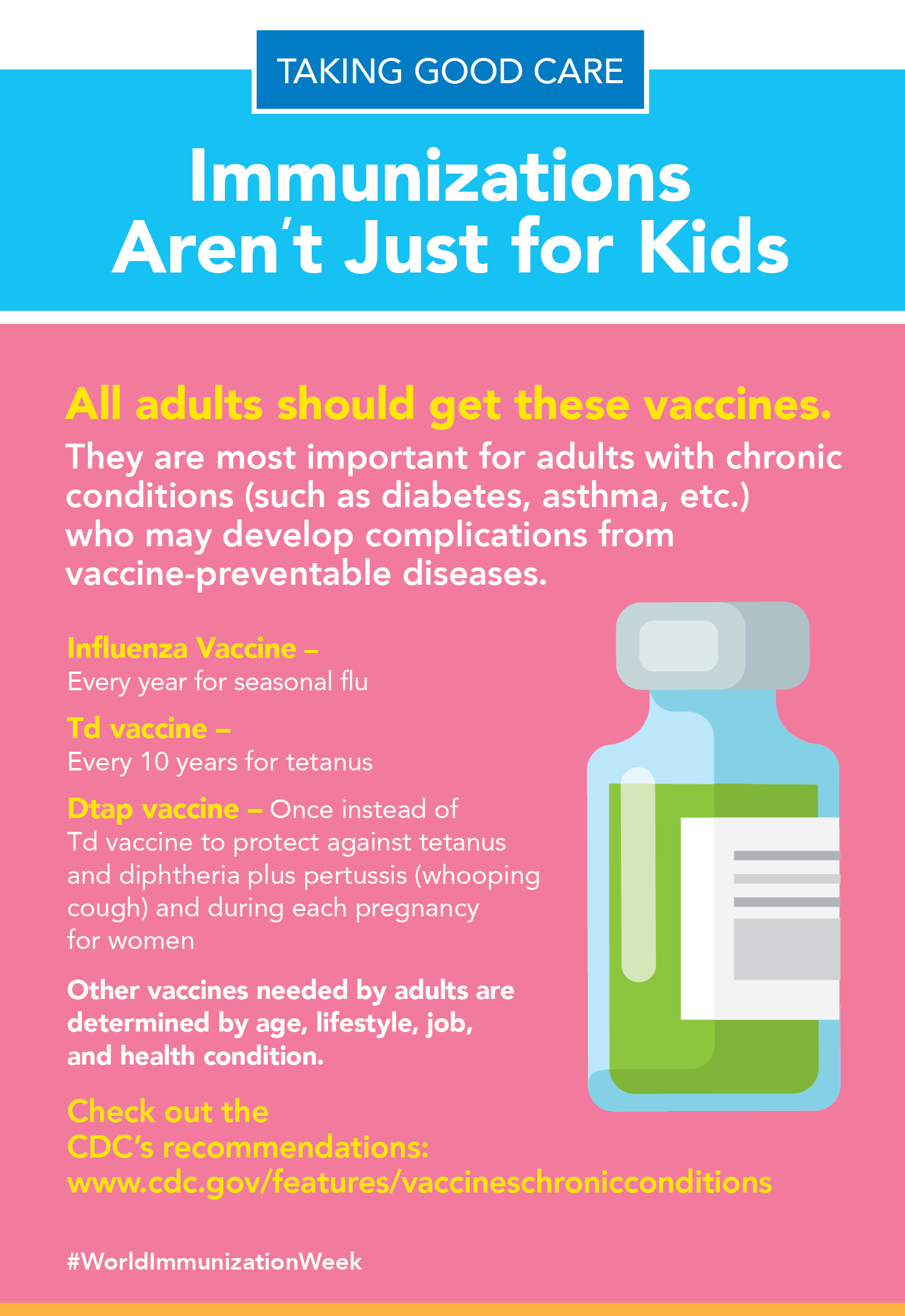Cuesta College Vaccination Policies
California Community Colleges do not require proof of immunization for enrollment. Depending on the major, immunizations may be necessary prior to acceptance into selected programs. Students should consult with the specific department for further information.
If you are looking for your California Vaccine Record, you can now request it online from the CDPH.
Recommended vaccinations for college students
Immunizations are not just for children. Protection from some childhood vaccines can wear off over time. You may also be at risk for vaccine-preventable disease due to your age, job, lifestyle, travel, or health conditions.

All adults need a seasonal flu (influenza) vaccine every year. Flu vaccine is especially important for people with chronic health conditions, pregnant women, and older adults. We offer flu and covid FREE vaccines during our Fall vaccine clinics, usually in the months of September/October. Watch for this on our website, in the Student and Success Program newsletter that comes out every Monday, and on the Cuesta events calendar!
Every adult should get the Tdap vaccine once if they did not receive it as an adolescent to protect against pertussis (whooping cough), and then a Td (tetanus, diphtheria) booster shot every 10 years. In addition, women should get the Tdap vaccine each time they are pregnant, preferably at 27 through 36 weeks.
In addition to seasonal flu (influenza) vaccine and Td or Tdap vaccine (Tetanus, diphtheria, and pertussis), you should also get:
HPV vaccine which protects against the human papillomaviruses that causes most cervical cancers, anal cancer, and genital warts. It is recommended for:
- Females and males ages 11 or 12 years (can start at age 9 years)
- Persons ages 13 through 26 years who have not been adequately vaccinated when younger
- Some adults ages 27 through 45 years who were not already vaccinated might choose to get HPV vaccine after speaking with their doctor about their risk for new HPV infections and possible benefits of vaccination for them.
Some vaccines may be recommended for adults because of particular job or school-related requirements, health conditions, lifestyle or other factors. For example, some states require students entering colleges and universities to be vaccinated against certain diseases like meningitis due to increased risk among college students living in residential housing, or to get the MMR vaccine against measles, mumps, and rubella.
Feel free to contact us or stop by to receive more information on these vaccines. We can refer you to an inexpensive place in the community.
Talk with your doctor or other healthcare professional to find out which vaccines are recommended for you at your next medical appointment.
More info: https://www.cdc.gov/vaccines/adults/index.html
Measles is a highly contagious disease that must be taken seriously.
IMPORTANT reminder regarding Measles: Public health officials urge people to avoid immediately going to a medical office
if:
1. They are not immune AND
2. They have been exposed AND
3. They have symptoms
Instead, call a health care provider or urgent care center by telephone to create an entry plan to avoid exposing others
in waiting rooms.
Getting vaccinated is a very effective way to prevent measles. People who are not immunized, or who have not received the full immunization, are at high risk of catching the disease. Now is a good time to check to see if you have been immunized. If you have not, there are several ways you can get vaccinated. Contact your insurance provider to see if the vaccine is covered at no charge. Anyone, regardless of insurance, can be vaccinated at the Public Health Department. If you are unsure of your immunity, your doctor can check with a simple blood test. Cuesta Student Health Center does not carry the vaccine or provide serology testing.
For Further Information For further information about measles, please call your local public health department or visit the www.cdc.gov/measles
Reference: Center for Disease Control
Click: What vaccines do I need? Use this online tool to find out.